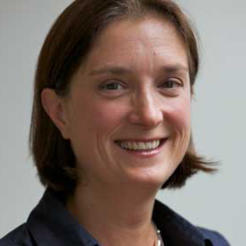Vicky Browning makes the case for taking back ownership of the word 'charity' and suggests some steps that the sector can take.
Ask a Daily Mail reader what they think of when they hear the word ‘charity’ and chances are they’ll talk about overbearing staff in huge corporate organisations pestering vulnerable old people for money to pay for their bloated salaries.
At least, that’s the impression many of them will have got from much of the negative media coverage charities faced in 2015.
But those of us working in the sector know that, while some of the coverage did reveal processes and practices at a handful of large charities that need to be addressed, the reality of how we work, what we do and – crucially – what we achieve, was not reflected in the headlines.
Public disquiet about charities’ behaviour, admin costs, salaries and fundraising has put the focus on charities as institutions and how they work, rather than on the role in society they play, and the benefit to society they help provide. This has created a risk of a growing detachment of people from the idea of charity (the needs and causes) because of disenchantment with charities (the institutions).
There’s no doubt there are houses in some parts of the sector that need to be put in order. It’s important for the fundraising powers-that-be to tighten up the regulation, and for charities to take a long hard look at their fundraising culture and practice.
But while that’s going on, shouldn’t we be thinking about reclaiming the C-word?
Isn’t it time to take back ownership of the word ‘charity’ and invest it with contemporary meaning: giving time, voice and money for social good and change?
I’ve been doing some work with the Understanding Charities Group, a cross-sector coalition of the willing wanting to help charities get on the front foot and present a more positive face to the public.
We’ve been looking at developing a narrative for the sector which tells our story in a way that highlights the common values which unite the largest ‘professional’ charity and the smallest ‘volunteer-led’ one.
We want to tell a story about people making the difference, not charities; to communicate charity as an expression of people’s concern and will.
We want to focus more on the impact and benefit of charity to society, and less on the organisations; how we are all touched by it, and benefit from it.
We want to encourage the feeling that giving time, voice and money for social good and change, is a good, rewarding feeling.
And we want to be able to explain, where necessary, how and why charities work the way they do.
‘Charity’ is about people caring about and making a difference to the problems in the world they want to help solve, and to things that enrich and benefit the society they live in. It’s an expression of people’s will to come together to make a difference, to do things that no one else can or will do.
‘Charities’ are the vehicles people choose to do that, fuelled by the same motivations. Their desire and responsibility to do the best they can makes them want to be professional and expert at what they do.
If these are the sort of messages you’d love to share with a disillusioned public, why wait for someone else to do it? The charity sector employs over 800,000 people: while we work for charities, we also benefit from them. Charity touches all of us in many ways, often unseen – delivering essential health and care services, improving the environment, enriching society through education and culture - as well as making a difference to the wider world. It makes our society richer and warmer.
If we as individuals start to tell our stories about how we’ve been #changedbycharity, that would produce a whole heap of positive examples of how people – by charity and through charities – are making the world a better place.
So why not share how you’ve been #changedbycharity and start spreading the good news?
Vicky Browning is director of CharityComms









